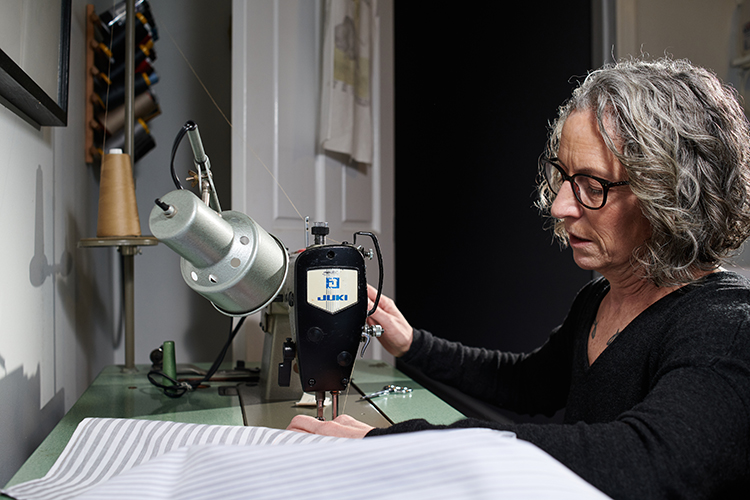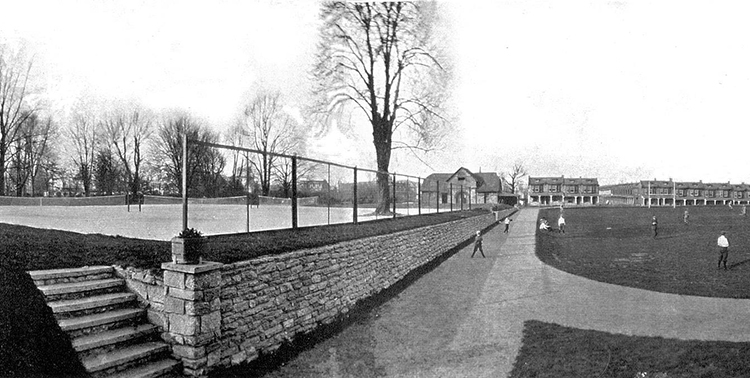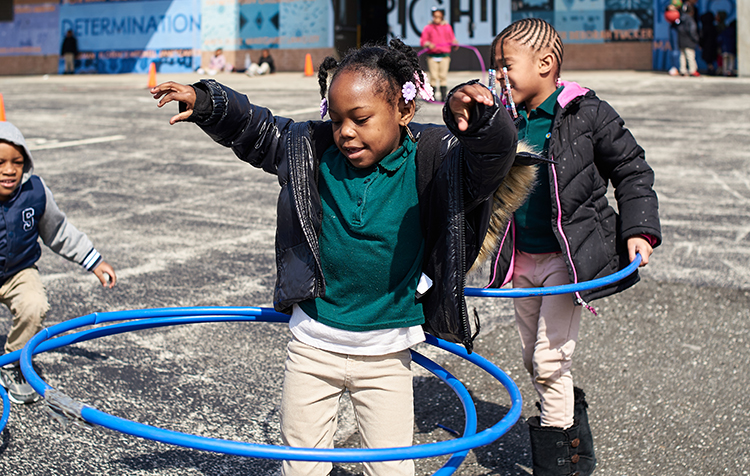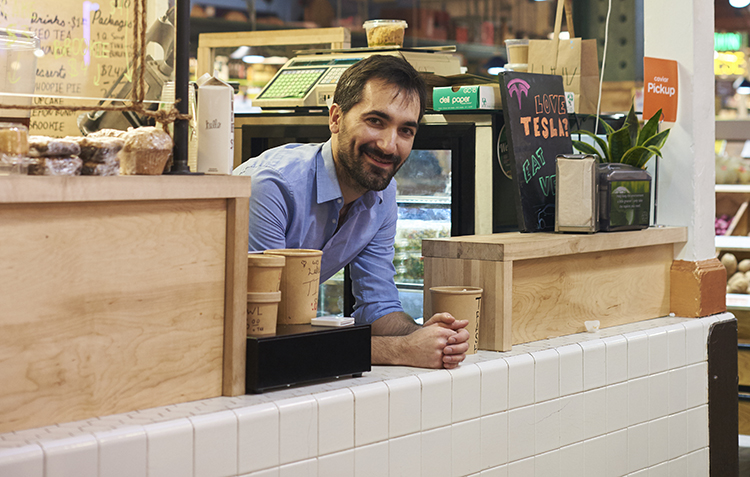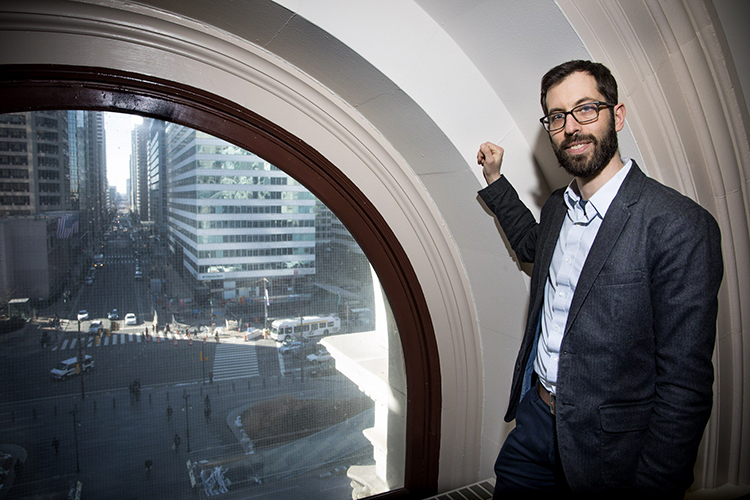Photo: Albert Yee
by Claire Marie Porter
Above a desk in an airy second-floor studio in Roxborough hangs a yellowing square photograph of a small girl with a curly pixie cut working a child-sized blue sewing machine.
“I’ve been sewing since I was a baby,” says Heidi Barr, smiling at the shot.
Her hair, still curly, is now shoulder-length and silver. Surrounded by light, linens and a large gray-and-white cat called Ollie, she tells the story of her latest sewing endeavor: a textile business she runs out of her house called The Kitchen Garden Series.
Barr, born in Philadelphia and raised in the Pacific Northwest, was a dancer in Arizona before returning to her home city to design and stitch costumes at Freedom Theater. But 15 years into her costume-designing career, she began to feel disillusioned by the amount of waste produced in the business.
That’s when she came up with the idea to put her skills to sustainable use and begin sewing kitchen wares to support local farms.
Her ethos has always been centered around sustainability, she says. Coming of age in Eugene, Oregon, Barr was taught: “Thou shalt not kill, thou shalt not steal, and this is how the watershed works.”
She comes from a family of architects and farmers, and she thinks of her business as a merging of the two.
“Aside from fabric and fiber, my connection to the food movement is where my success lies,” she says. Barr consistently supports Weavers Way and the East Park Revitalization Alliance—two community-driven food projects—through her work.
Piles of men’s dress shirts in patterned grays, whites and blacks line the wall in her basement workspace, which she calls her “white-out space.”
Anyone familiar with thrifting is aware of the seemingly endless supply of unwanted men’s dress shirts. When they don’t get sold in the secondary clothing market, they often get dumped into developing countries, says Barr, putting the countries’ local textilers out of business.
“Our garbage is destroying industries,” Barr says. “I wanted to step in the path of that.”
Currently, Barr’s products are made up of approximately 20 percent reclaimed materials.
She started buying upcycled men’s shirts to make reusable napkins. They proved to be a good aesthetic choice, too. As one of her clients, Philadelphia chef Ari Miller says: “When you’re eating, you really just have an urge to wipe your mouth on your shirt.”
In 2016 her business grew significantly, and Barr started to use linen materials as well, buying from a Lithuanian mill that offers her remnants and offcuts. Linen is an eco-friendly fiber because the crop requires little pesticides and water to thrive, she says. The fiber is soaked in water to rot away the outer portion of the stalk. It’s never bleached or dyed, she says, and it’s also compostable.
“Worms will eat it,” Barr says, “so it’s zero waste by definition.”
She also reclaims a portion of her materials from film and theater productions and salvage stores, and she determinedly uses every part—yards of reclaimed set draping may become grocery bags; leftover shirt sleeves offer a quaint tea towel border.
When Barr sews, she takes off her shoes, placing both feet on the pedal of her industrial sewing machine.
“Are you ready for the noise?” she says. “It’s like a jet!”
She begins to sew. The room quakes.
“The roar of the Juki!” she says.
Her textile designs draw from nature. She looks for movement in her patterns. The trumpet flower inspired her trademark “box pleat,” a technique she used to make dance costumes, she says. It gives dancers a straight silhouette with the ability to move. She’s transferred the design to her market bags, giving them a secret “tomato pocket” for fragile produce.
Another remnant of her costuming days can be glimpsed in her seams, always French or flat felled. They give her products a couture finish. Every piece has an affectionate, singular detail—a dainty orange thread on a black-and-white napkin, a seed sack’s vintage logo stamp on her chef’s aprons, overlapping seams on a market bag.
In 2017 Barr hired a business partner and a director of sales and began outsourcing to a factory shop in Allentown, bringing on 15 employees. She provides napkins, made entirely of upcycled shirts, for Miller’s new restaurant in South Philadelphia, Musi. She’s participated in the Muhibbah dinner series, a celebration of diverse chefs that centers on and supports immigrant and refugee communities in Philadelphia.
Barr is hustling. She needs a real studio, she says, because she wants her house back.
To her, it’s no mystery what made her business flower so suddenly.
“Tenacity,” she says, without missing a beat.
*This article originally implied that Barr opened a shop in Allentown—it’s been updated to reflect that she began working with an already existing factory.


